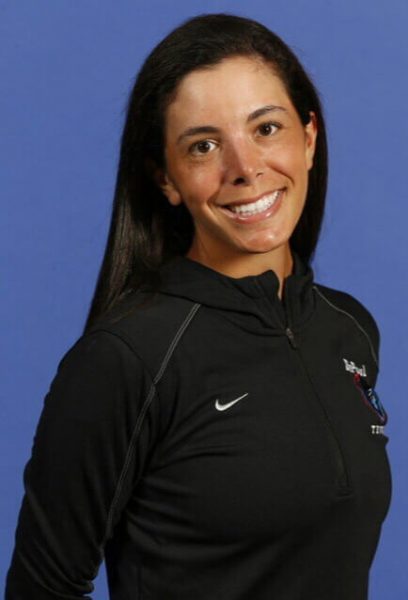Student Energy’s Global Youth Energy Outlook is led by a team of 12 youth Regional Coordinators who are working together to reach a total of 50,000 young people around the world in 2020 and 2021. As they engage young people in their region through a two-phase research process, the Outlook’s Regional Coordinators will be gathering insights and recommendations to develop the final Outlook report, with key findings set to be shared at COP26 in 2021.
In this interview series, we get to know each of our Regional Coordinators in-depth:
Introduce yourself and where you come from.
“My name is Jarret Fisher, I grew up and currently live in Chicago. When I was 12, I moved by myself to an international tennis academy in New Braunfels, Texas called the John Newcombe Tennis Ranch. I lived in the dormitories there for six years, trained on a full scholarship, and am a proud graduate of New Braunfels High School. I then returned to Chicago to attend DePaul University, where I competed on the varsity women’s tennis team while I earned my Bachelor’s and MBA.”
Why are you passionate about energy and/or climate action?
“Energy is everything in modern life. Let’s look at a few typical activities throughout a day. When you wake up to start the morning, you’ve probably set an alarm on your smartphone. And most likely, your smartphone was charging all night. That requires energy. You stumble into the bathroom to wash your face and brush your teeth; how do you think the water got to your sink? That process definitely required energy. You go to the kitchen to make yourself breakfast. Maybe you make toast in the toaster, or pull something out of the refrigerator. Both the toaster and refrigerator require electricity to work, which is just one form of energy. Then you get ready to work or study from home, on your laptop, which requires energy to stay charged all day. These are just a few of many examples. As ubiquitous as energy is, it means energy has the greatest impact on the environment and climate. How did I arrive at this conclusion? According to Natural Resources Canada, 78% of greenhouse gas emissions from human activity come directly from the production and consumption of energy. Although this is frightening, I see it as an opportunity to reduce GHG emissions by just as much if we can transition to clean, renewable energy sources that are net-zero emissions.”
What do you think are some of the biggest challenges to transitioning to a sustainable energy system in your region?
“Lack of political will is the biggest roadblock to transitioning to sustainable energy in the United States. Believe it or not, not everyone in our country believes the warnings put forward by climate scientists. Science cannot be politicized. A challenge everyone can agree on is jobs. When we leave behind certain energy sources such as coal, how do we ensure we are not leaving behind those who were employed in that sector? We need to design and implement large-scale re-tooling and job training programs and provide assurances that there will be a good job at the end of the transition period.”
What aspects of the energy system in your region do you plan to learn more about?
“I am excited to learn more about the exact existing capacity in North America for clean and renewable energy sources including hydro, solar, wind, biomass, and geothermal. Further, I am a systems-level thinker, so I want to understand better from a technical perspective how energy gets from the raw source to the end-user. Beyond my own region, I’ve been researching about large-scale waste-to-energy plants around the world ever since I had the opportunity to visit the Amager Bakke facility, also known as Copenhill, in Copenhagen, Denmark during graduate school. Not only is it a waste-to-energy plant, there is also a ski slope on top of the facility!”
How did you first get involved in Student Energy?
“I was the sole American delegate at the Youth Leaders Forum at CEM/MI in Vancouver, May 2019. Student Energy designed and implemented this important initiative. Check out the recap video, it gives me chills every time!”
As part of her work on the Outlook, Jarret recently hosted a podcast called “Sustainable Cities” on cities and the SDG’s! You can check it out here.
